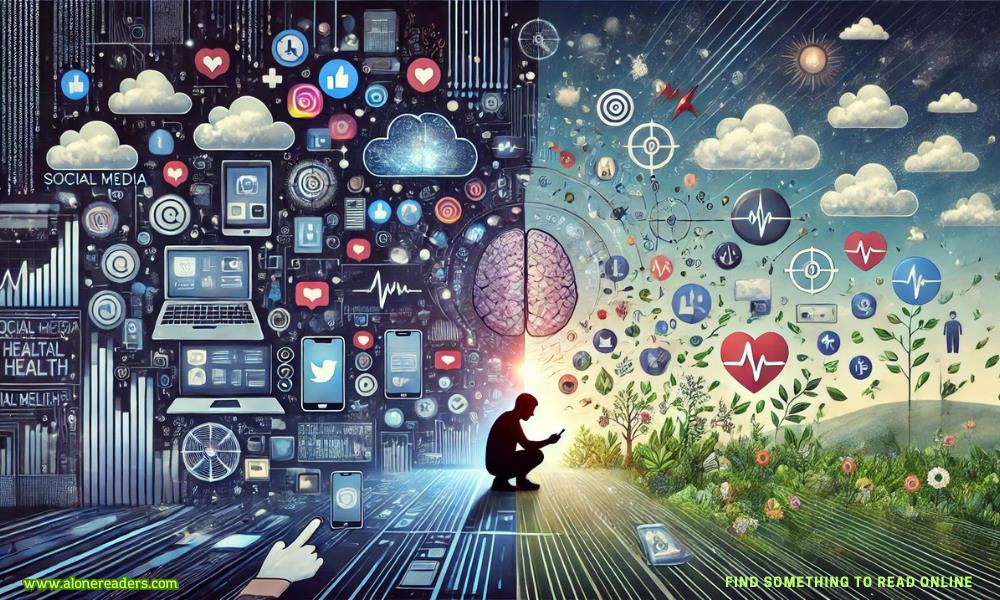
In today's digital age, technology and social media have become integral parts of our daily lives. The rapid advancement of digital tools and platforms has transformed the way we communicate, work, and entertain ourselves. However, this constant connectivity and the pervasive nature of social media also have significant implications for our mental health and well-being.
The rise of social media platforms such as Facebook, Instagram, Twitter, and TikTok has created new opportunities for social interaction and information sharing. These platforms allow us to stay connected with friends and family, meet new people, and access a wealth of information at our fingertips. However, the way we engage with social media can also have profound effects on our mental health.
One of the positive aspects of social media is its ability to provide support and build communities. Online groups and forums can offer a sense of belonging and understanding, particularly for individuals who may feel isolated or marginalized in their offline lives. For example, people dealing with chronic illnesses, mental health issues, or specific life challenges can find comfort and advice from others who share similar experiences. Social media can also facilitate professional networking and career development, providing platforms for individuals to showcase their skills and connect with potential employers or collaborators.
Despite these benefits, there are also significant risks associated with excessive use of social media. One of the most concerning aspects is the impact on self-esteem and body image. Social media often presents a curated version of reality, where users showcase their best moments and achievements. This can lead to unrealistic comparisons and feelings of inadequacy among viewers. The constant exposure to idealized images and lifestyles can exacerbate issues such as low self-esteem, anxiety, and depression, particularly among young people.
The phenomenon of cyberbullying is another critical issue linked to social media use. The anonymity provided by online platforms can embolden individuals to engage in harmful behavior, such as spreading rumors, making threats, or sharing embarrassing content about others. Victims of cyberbullying may experience severe emotional distress, leading to anxiety, depression, and even suicidal thoughts. The pervasive nature of the internet means that negative content can spread rapidly, making it difficult for victims to escape or seek support.
Moreover, the addictive nature of social media and technology cannot be overlooked. Many users find themselves spending excessive amounts of time online, often at the expense of face-to-face interactions and real-world activities. This can lead to a sense of disconnection from the physical world and contribute to feelings of loneliness and isolation. The constant notifications and the pressure to stay connected can also result in heightened stress and anxiety levels, as individuals feel the need to be constantly available and responsive.
The impact of technology on mental health extends beyond social media. The proliferation of smartphones and other digital devices has changed the way we work and relax. The blurring of boundaries between work and personal life can lead to burnout, as individuals struggle to disconnect from work-related tasks and responsibilities. Additionally, the blue light emitted by screens can interfere with sleep patterns, leading to sleep deprivation and its associated mental health issues, such as irritability and difficulty concentrating.
However, it is important to recognize that technology can also play a positive role in mental health management. There are numerous digital tools and applications designed to support mental well-being. For instance, mindfulness and meditation apps can help users manage stress and anxiety. Teletherapy and online counseling services have made mental health support more accessible, particularly for those who may not have the means or opportunity to attend in-person sessions. These digital interventions can provide valuable resources and support for individuals seeking to improve their mental health.
Maintaining a healthy relationship with technology and social media is crucial for mental well-being. It is important to be mindful of the time spent online and to prioritize real-world interactions and activities. Setting boundaries, such as designated tech-free times or spaces, can help create a balance between digital and offline life. Engaging in regular physical activity, pursuing hobbies, and spending time with loved ones are all essential for maintaining mental health.
Furthermore, being critical of the content consumed on social media and recognizing the curated nature of online personas can help mitigate the negative impact on self-esteem and body image. Seeking out positive and supportive online communities, rather than engaging with negative or toxic content, can also make a significant difference.
In conclusion, while social media and technology offer numerous benefits and opportunities, they also present significant challenges for mental health. By being mindful of how we engage with digital platforms and prioritizing our well-being, we can harness the positive aspects of technology while mitigating its risks. Maintaining a balanced and healthy relationship with the digital world is essential for preserving our mental health in the digital age.